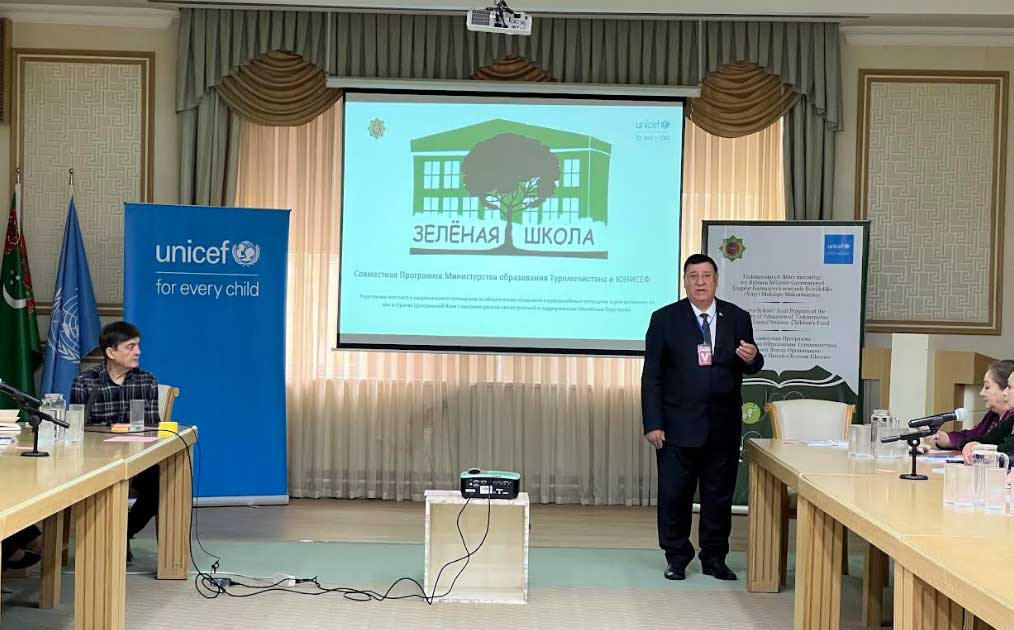On 21 October, The Ministry of Education of Turkmenistan and the National Institute of Education, with the support of UNICEF, have launched the implementation phase of the Green School Programme, concluding the first round of seminars dedicated to its rollout. At this initial stage, the initiative will engage 20 pilot schools across the country. The Green School Programme aims to integrate environmental education and sustainable practices into daily school life, nurturing a culture of responsibility and respect for nature among students and teachers alike.
As part of the programme’s expansion, school administrators and teachers will take part in practical workshops to develop school-level environmental action plans and establish Environmental Committees. The sessions will also provide guidance on applying Green School criteria— including conducting environmental assessments, organizing awareness campaigns, and creating Environmental Codes to promote sustainability within schools and their surrounding communities.
“The Green School Programme helps children understand that their actions can make a difference. By encouraging schools to take practical steps—such as reducing waste, saving energy, and caring for their surroundings—we are helping build a generation that values sustainability and safeguards their future,” said Maaike Bijker, UNICEF Deputy Representative a.i. in Turkmenistan.
The Green School Program supports the Government’s ongoing efforts to integrate climate and environmental topics into the national education system, advancing Turkmenistan’s commitments under the National Climate Change Strategy, National Determined Contributions (NDC) and the Sustainable Development Goals (SDGs).
By nurturing children’s awareness and engagement, the Green School Programme will inspire collective action toward a cleaner, greener, and more sustainable future for every child.
More detailed information about the Green School program is available at the UNICEF website.









